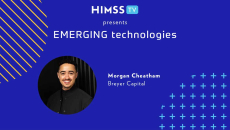Operations
HIMSS25
Sara Meinke and Asad Tariq of Baptist Health discuss how a predictive analytics tool has helped reduce patient wait times and enabled nurses to have uninterrupted lunch breaks, increasing patient and staff satisfaction.
HIMSS25
Cooper University Health Care's Dr. Michael Kirchhoff says the health system's hackathon brings together coders, clinicians and other professionals to create and pitch grassroots programs that address social determinants of health.
A global outage on Thursday disrupted a range of services, including several AI tools widely used in healthcare, such as Vertex AI, Dialogflow CX, Agent Assist and Contact Center AI.
Through working with global leaders, educating its members and developing digital transformation tools for health systems, Hal Wolf, HIMSS president and CEO, says HIMSS encourages the ethical and practical integration of AI in healthcare.
Paul Grand, CEO of MedTech Innovator, discusses how the accelerator embraces high-risk, high-reward technologies and steers them to market with industry expertise.
New chief medical information officers should surround themselves with people who know more than they do and create a team that fills the gap in their knowledge and experience, says Epic Emeritus CMIO Dr. Robert W. Warren.
HIMSS25
Getting every image, anywhere, to anyone who has the right to the image, including physicians and patients through the personal health record, is a key goal, says Dr. David Kaelber, Cleveland MetroHealth's chief medical informatics officer.
Morgan Cheatham, partner and head of healthcare and life sciences at Breyer Capital, provides highlights of the venture capital firm's strategy when funding emerging technologies and the risks associated with backing these innovations.
Punit Soni, founder and CEO of Suki, says AI is a fundamental technology that changes hospitals', physicians' and patients' healthcare experience, impacting every aspect, including care delivery, patient summarization and the revenue cycle.
HIMSS25
Tom Liddell, Harmony Healthcare IT CEO, says the company's AI-powered clinical registry automation tool is already delivering results for clients and will be featured in an upcoming HIMSS book on AI innovation.








